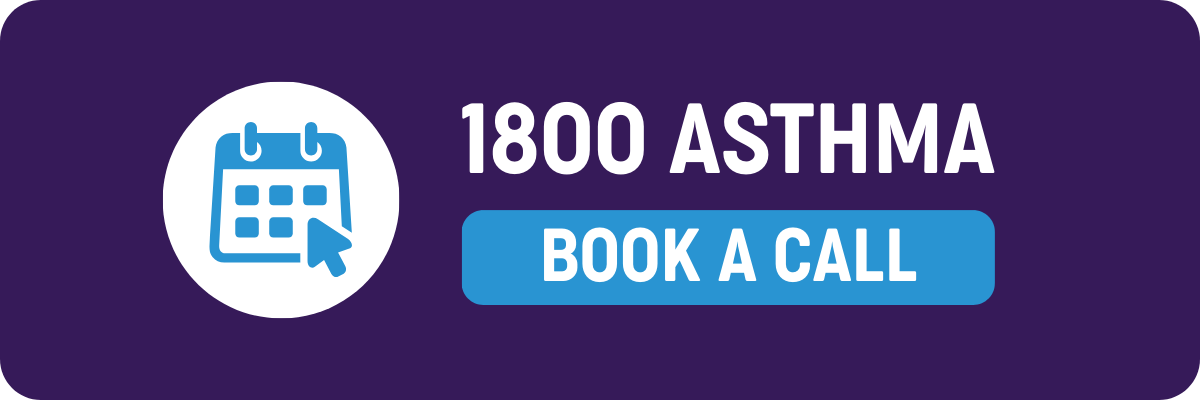Common Symptoms
The causes of asthma are often unknown, and researchers continue to explore genetic and environmental factors.
Book a call with an asthma educator
People diagnosed with asthma often have family who also may have asthma, eczema or hay fever. Research has shown that exposure to chemicals, particles and gases in the environment can increase the chance of developing asthma.
This includes:
- tobacco smoke (especially as a baby or young child)
- pollution from bushfires, traffic and industry
- some workplace chemicals.
Some studies have also found a link between asthma and obesity.
Researchers continue to find out more about what causes asthma and how we might prevent it in the future.
WHAT ARE THE SYMPTOMS OF ASTHMA?
Not all people with asthma have the same symptoms.
Not all people with asthma have all the symptoms.
Asthma symptoms are the signs, effects or feelings that you may notice as a result of having asthma. Your asthma symptoms are caused by changes in the airways (breathing tubes) of your lungs. These changes make it harder to breathe.
The most common asthma symptoms are:
1. Cough

A cough happens because your airways have narrowed, and more mucus has formed. A cough caused by asthma might be:
- an on-going cough or one that won’t go away
- a cough that only occurs during the night or early morning
- a cough during sport or activity
- a cough when excited or laughing.
2. Wheezing

A whistling or squeaky sound when you breathe is made by the narrowing of your airways.
3. Shortness of breath

Feeling breathless, or out of breath, because your airways are too narrow to allow the air you need in or out.
4. Chest tightness

This might feel like something is squeezing or sitting on your chest. This is the feeling of the muscles around your airways tightening.
Symptoms range from mild to more serious. Asthma symptoms are often worse at night or early morning, making it hard to sleep.
You might have other symptoms that include:
- feeling tired
- increased heart rate
- becoming sweaty.
These symptoms may happen because of the extra work needed for breathing. Using all your chest muscles to help with your breathing means you need more energy, which makes your heart beat faster.
We also know that:
- symptoms can be different from person to person
- symptoms can change for one person from one time to another
- symptoms can be every now and then, or all the time.
WHAT ARE SILENT SYMPTOMS?
Some people with asthma may have silent symptoms. They may not notice any asthma symptoms until they become really unwell.
Being breathless can be a silent symptom. It’s not as obvious to you or others as coughing a lot or wheezing. It can also be ignored or passed off as being unfit or tired. For people with silent symptoms, sometimes their doctor will ask them to use a peak flow meter to help them measure whether their airways are narrowing.
If you or someone you care for has silent asthma symptoms, you should let people around you (doctors, school/daycare staff, work colleagues, family and friends) know so they can help and support you when you need it.
WHAT SHOULD I DO IF I THINK I HAVE ASTHMA SYMPTOMS?
If you suspect you or your child might have asthma after reading about the symptoms, you should see your doctor for a diagnosis. Don’t ignore the symptoms – if you or your child do have asthma, the sooner you get it under control, the faster you can get back to living a full and active life.
ARE YOU GETTING USED TO ASTHMA SYMPTOMS?
Sometimes, you or your child might have asthma symptoms so often that you get used to these symptoms. It becomes the ‘new normal’ way of being or breathing.
Ignoring or putting up with symptoms can be dangerous because your asthma can become worse more quickly. Without treatment of your symptoms, there may also be long-term damage to your lungs.
If you have trouble with your symptoms, talk with your doctor about how they can help.
Asthma Educators can answer your asthma questions
Book a FREE phone call at a time that works for you or call us direct on 1800ASTHMA (1800 278 462).





 1800 278 462
1800 278 462